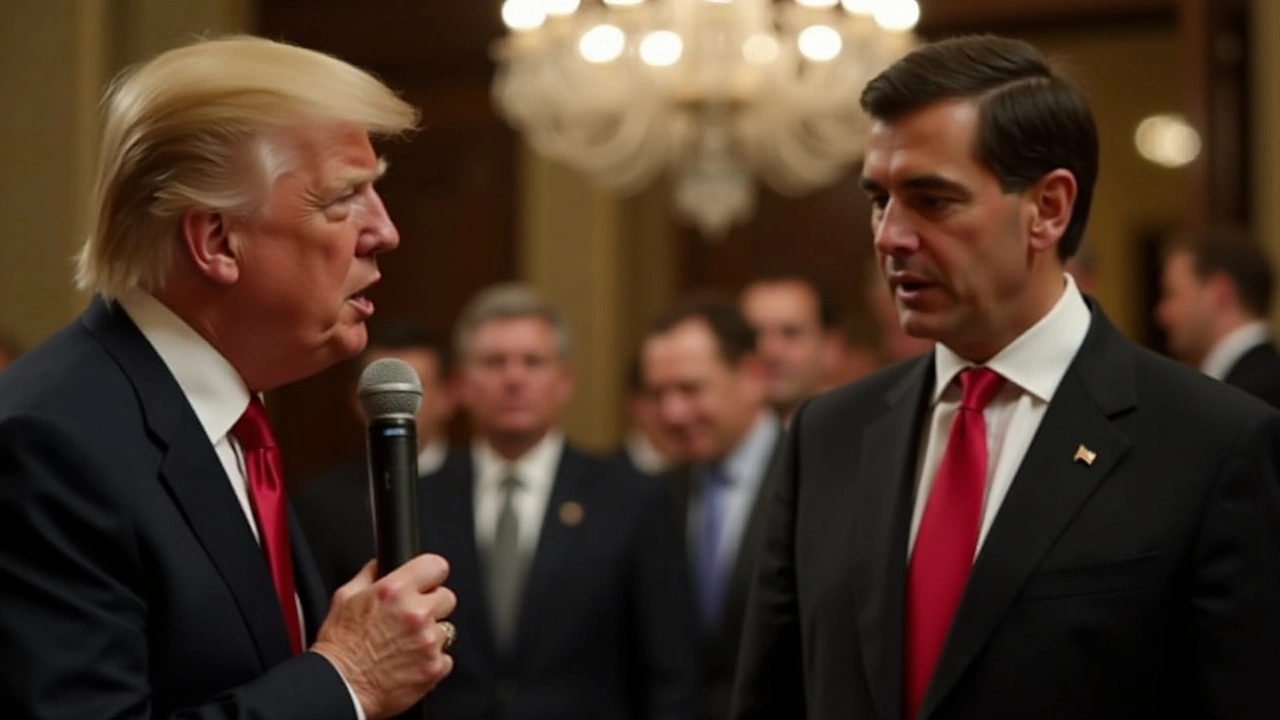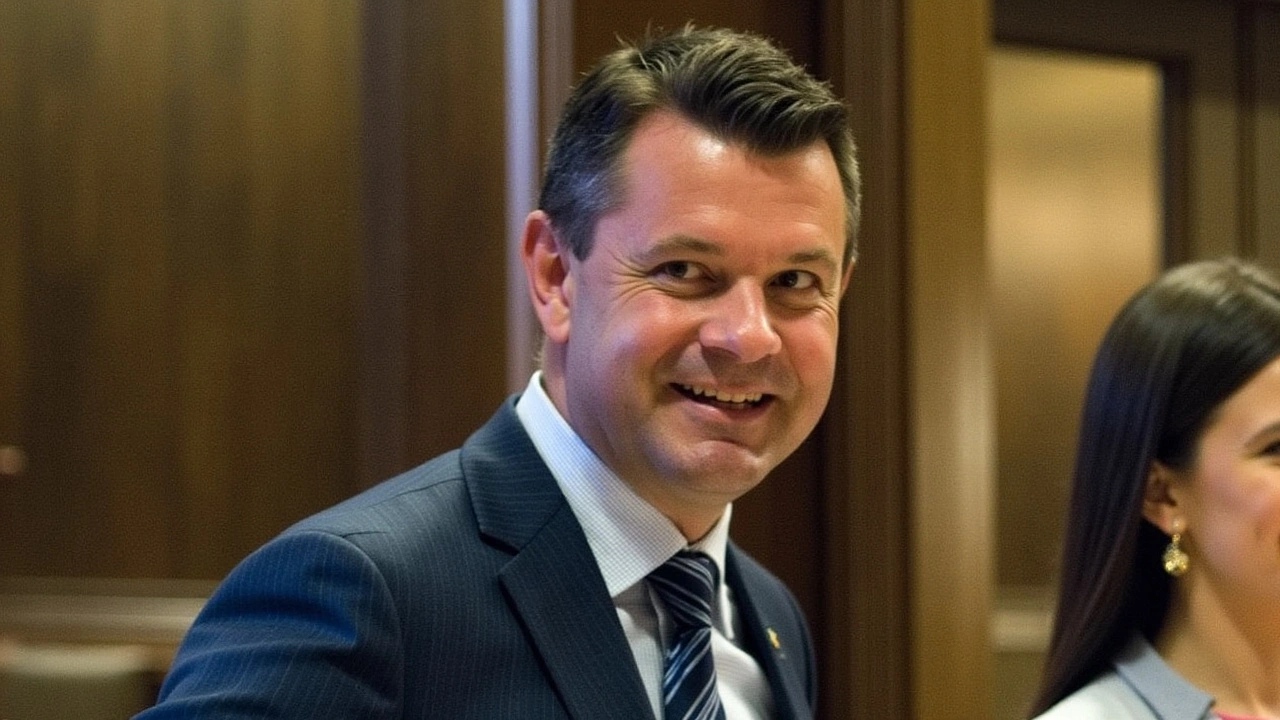Introduction to Hegseth's Nomination
A surprising turn of events in Washington has captivated both political insiders and defense experts: President-elect Donald Trump's decision to nominate Pete Hegseth, a Fox News host and former Army infantry captain, as the next U.S. Secretary of Defense. This announcement, stunning in its unconventionality, has left many at the Pentagon and across the broader defense spectrum questioning the implications of such a bold choice. With Hegseth's high-profile background in media and his vocal critiques of current diversity initiatives, Trump's choice clearly signals an aggressive shift in military policy.
At 44 years old, Hegseth has served in Iraq and Afghanistan, earning respect for his grassroots understanding of military operations. However, his partial experience at the command level has sparked debates about his readiness to manage one of the largest defense budgets and military forces in the world. Regardless, Donald Trump has expressed unyielding confidence in Hegseth's ability to restore what he calls 'American greatness' in defense matters, committing to a strong nationalist agenda that aligns with his 'America First' doctrine. The nomination emerges as a powerful example of Trump's penchant for shaking up traditional Washington norms.
Background and Military Experience
Hegseth graduated from Princeton with distinction and later obtained a master's degree from Harvard. Such an educational pedigree has undoubtedly equipped him with analytical prowess, although some argue it might fall short when it comes to the vast strategic necessities of Pentagon leadership. Hegseth's tours in Middle Eastern conflict zones have certainly imparted firsthand insights into the rigors and realities of warfare, experiences that many believe will influence his approach to defense policy.
Notably, Hegseth first rose to prominence on Fox News, where he became a household name for political commentary, particularly with regards to national security. His fierce criticism of the Pentagon's inclusivity programs and the push for a more diversified military have garnered significant attention—and controversy. Such views resonate deeply with a segment of Trump's base who advocate for strict military tradition over contemporary social reforms. However, this stance has also raised red flags among progressive groups and military personnel concerned about potential setbacks in diversity gains achieved over the years.

Hegseth's Potential Impact on Policies
Hegseth’s stance against many of the Pentagon’s forward-thinking diversity programs has sparked both support and skepticism. The notion of repealing these initiatives worries those who advocate for a modernized and inclusive military force. Of particular concern are the roles of women in combat and the progress regarding inclusivity in service, areas where Hegseth’s views are markedly conservative. For many in the defense community, the question of how Hegseth will navigate these contentious waters remains imperative.
The Pentagon, at this moment, is embroiled in supporting global conflict zones, including the ongoing crisis in Ukraine, as well as managing tensions in the Middle East, where potential escalations with Hezbollah and other regional threats loom. Hegseth's approach to these and other complex geopolitical hotspots will set the tone for his tenure, offering a real-time test of his capabilities and fortitude as the head of America's defense operations.
Financial and Operational Responsibilities
Leading the Department of Defense involves commanding an enormous fiscal responsibility, managing a budget that often exceeds $800 billion, with projections suggesting this could rise above $1 trillion under Hegseth's stewardship. The role demands keen economic oversight and strategic allocation of resources to ensure the military's readiness and technological advancement. This comprises a massive obligation to over 2 million active service members and numerous civilian employees, as well as intricate interagency cooperation within the national security infrastructure.
With limited senior experience typically expected for such a high office, Hegseth’s financial acumen will be tested rigorously. Notably, his capacity to balance a robust military agenda with economic prudence will undoubtedly influence his effectiveness as a leader. Questions surrounding his approach to dealing with extensive logistical operations and international partnerships will be under intense scrutiny as the administration commits to a renewed defense strategy.

Political and Public Reaction
The nomination of Pete Hegseth has already provoked a whirlwind of reactions from political stakeholders across the spectrum. Supporters laud the choice as a needed departure from the bureaucratic status quo, choosing instead a figure who embodies unconventional wisdom and a steadfast belief in restoring American military dominance. For many within Trump's circle, Hegseth is the ideal candidate to usher in an era where American might is visibly reaffirmed on the world stage.
In contrast, critics have voiced serious concerns over Hegseth’s suitability for the position, pointing to his lack of comparative experience relative to other potential candidates, like Sen. Joni Ernst and Rep. Mike Rogers. These figures had been viewed as more conventional choices, with proven track records in defense policy and military affairs. The implications of Hegseth's appointment could lead to significant policy shifts, prompting a rigorous confirmation process where these topics will be center stage. Meanwhile, defense contracts, strategic alliances, and roles in global peacekeeping may be re-evaluated in this new era.
Conclusion and Future Implications
With Trump at the verge of his presidential term and Hegseth positioned to potentially steer the Department of Defense, America’s military future could reflect substantial change. The path ahead will require Hegseth to confront deep-rooted issues within the defense apparatus while navigating a politically divided landscape. The implications of his leadership are poised to influence military policy directionally, possibly reshaping the Pentagon’s mission and operational focus amidst ongoing global challenges.
The process leading to Hegseth's confirmation, expected to be a thorough and possibly turbulent affair, will set the tone for his start as Secretary of Defense. As America and its allies look toward a future filled with uncertainty and opportunity, the stakes surrounding how the U.S. manages its defense policies could not be more critical. With anticipation mounting, the spotlight remains fixed on both Trump's administration and Hegseth, urging thoughtful consideration of future military strategies and priorities.
